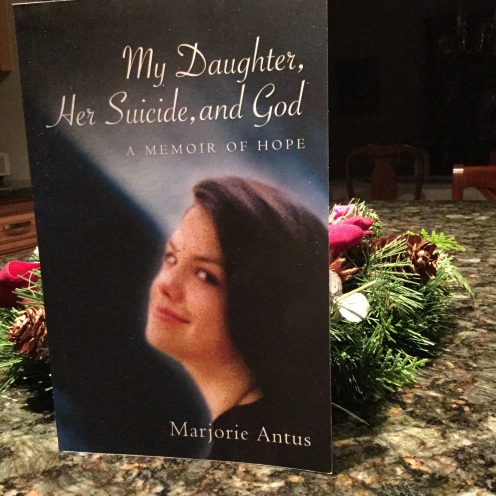About one father whose daughter ended her life by overdose on a second attempt, clinical scholars John Jordan and John McIntosh write, “[He condemned] himself for his failure to believe that his daughter could really have wanted to die–her death was simply a brutal violation of everything he thought he knew about [her]” (Grief After Suicide: Understanding the Consequences and Caring for the Survivors. New York: Routledge, 2011, p. 181).
It’s the “brutal violation” element of suicide bereavement that makes it surreal and disorienting. A constant personal theme after my daughter Mary’s suicide was that, despite the fact we were living under the same roof, I had not known her. I had not imagined my daughter capable of taking life-enhancing medication and turning it into poison. Her doing so was incomprehensible then and even now jolts me at odd moments.
One thing everyone seems finally to know about suicide is that there are no real answers for “Why?” No words anyone can offer–including the deceased in their suicide notes–get to the deepest truth of why certain instances of human suffering end in suicide. “A survivor may be able to say, ‘My sister was depressed,’ but he also continues to utter the words, ‘Why did she do it?’ A survivor can say, ‘Dad was angry at the world,’ but she also has to say, ‘I don’t understand.’ A family can say, ‘We were hostile toward each other,’ but it still wants to know ‘Why? What is the whole truth?'” (Christopher Lukas and Henry Seiden, Silent Grief: Living in the Wake of Suicide.Northvale, New Jersey: Jason Aronson Inc., 1997, p. 92)
Searching for the answer, no matter how elusive, is usually healing. According to Jordan and McIntosh, those bereaved by suicide tend to construct a “coherent narrative that helps [them] make at least partial sense of the suicide [which] is a central healing task for most survivors” (p. 182).
Making sense of the senseless–for me laborious and unnerving–was the only way out of the darkness of grief into what seems a kind of new life.
